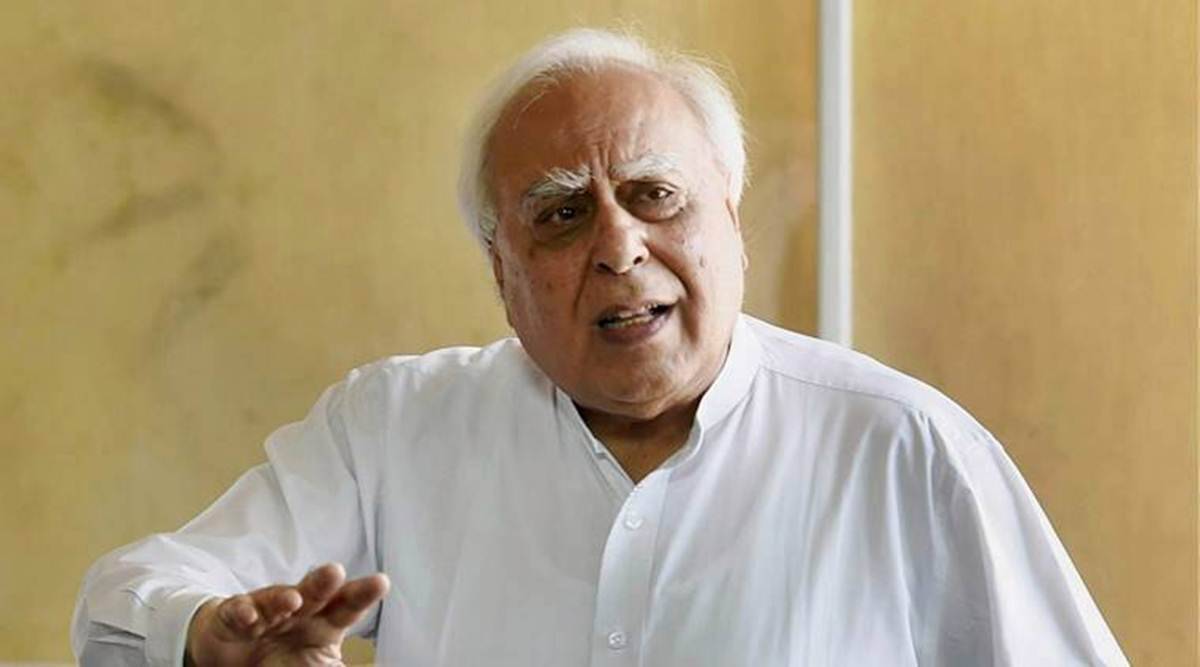Government aims to seize the final bastion of liberty; attack on higher judiciary is “ill-advised”: Sibal, Kapil

Kapil Sibal, a former law minister and current member of the Rajya Sabha, claimed on Sunday that the government was attempting to “capture” the judiciary and that it was making every effort to set up circumstances that would allow the NJAC to be tested before the Supreme Court once more in “another avatar.”
Sibal, 74, argued that the Kesavananda Bharati verdict’s basic structure concept was crucial in the present and dared the administration to publicly admit if it was incorrect.
He asserted that the government resents the fact that it does not have the last say in selections to the higher judiciary and has not gotten used to it.
In an interview with PTI, Sibal stated that “they are doing everything possible to set up a scenario in which the National Judicial Appointments Commission (NJAC) may be tried in the Supreme Court once more in yet another avatar.”
Days prior to his comments, Vice President Jagdeep Dhankhar, who is also the head of the Rajya Sabha, once more criticised the Supreme Court’s repeal of the NJAC Act. Additionally, Dhankhar questioned the 1973 Kesavananda Bharati case ruling, claiming it established a bad precedent and that he disagreed with the Supreme Court’s decision that Parliament may modify the Constitution but not its fundamental principles.
The NJAC Act, which intended to abolish the collegium method of selecting Supreme Court and high court judges, was declared unconstitutional and overturned by the highest court in 2015.
Sibal said when asked about Dhankhar’s comments: “When a high constitutional authority and a man who is knowledgeable about the law makes a comment of this sort, one has to first address the question — is he speaking in his own capacity or for the government.” I’m not sure what capacity he is speaking in, therefore. That must be verified by the government. The senior Supreme Court counsel stated, “If the government officially announces that they concur with his ideas, then it has a different connotation.
When questioned about the Rajya Sabha Chairman’s comments regarding the Kesavananda Bharati case verdict, Sibal responded that if they represent his personal opinion, then he has the right to express it.
Sibal, on the other hand, harshly criticised Law Minister Kiren Rijiju for his criticisms of the legal system and the collegium system, calling them “unfortunate” and “a matter of great concern.”
I’ve previously stated that the law minister may not be well-versed in how courts operate or conversant with court procedures. He can be basing these statements on impressions and unreliable information. He appears to have received an inadequate briefing,” Sibal remarked.
But whatever it is, the former Congress leader criticised Rijiju by saying, “It is unacceptable to make such things openly.”
According to Sibal, the government’s goal is crystal clear: they want to “grab” the authority to choose judges for the higher judiciary and want their word to be law in this matter.
“If they succeed in doing that, democracy would not fare well. As it stands, they have control over every institution. The last bastion of freedom is the judicial system. If the government is given the last say in the selection of judges to the higher judiciary, they will staff these organisations with people whose ideologies correspond with those of the political party in power, he claimed.
“As it stands, we are having a hard time keeping up with this government’s juggernaut, which has taken over all institutions. We believe that these institutions follow the government’s directives or do so because they want to appease it for reasons that are best known to them, the official said.
Sibal claimed that the nation is in “great difficulty” due to the Chinese “invading into our territory both in Ladakh and in Arunachal Pradesh,” the impending global economic downturn, the country’s historic trade deficit with China, the lack of dynamism in private investments, and “historic low” household saving rates.
The government, by failing to take action, is fostering divisive forces that will destroy our social fabric instead of focusing on actual issues affecting our people, such as the environment, education, and healthcare.
Attacking the higher judiciary at this time would be “ill-advised and untimely,” according to Sibal.
“There is no question that the Collegium system is being attacked on purpose. The Supreme Court collegium’s control over selections to the upper judiciary is not popular with the government, he claimed.
Sibal argued that the Constitution is superior because the court has the authority to conduct judicial reviews.
Sibal stressed the importance of the theory for the present, saying, “I dare argue that the government does not have the fortitude at this point in time to proclaim that the basic structural theory is faulty. In fact, he continued, the Constitution’s fundamental framework has to be enhanced.
The right to free speech, the right to life and liberty, the federal structure, the inclusive nature of our polity, the separation of powers, and judicial review are just a few of the features of the Constitution that Kesavananda Bharati (verdict) enunciated as being fundamental to our lives, he said.
Sibal argued that, notwithstanding his criticism of the collegium system, the government cannot make appointments to the higher judiciary at this stage in our democracy.
In the meantime, Sibal praised the Bharat Jodo Yatra, saying Rahul Gandhi had been successful in bringing together diverse facets of society and making them understand how critical maintaining national unity is.
The party’s Kanyakumari to Kashmir Yatra, according to Sibal, who left the Congress last year, “optically” seemed to have succeeded and gained the backing of non-Congress elements as well.



